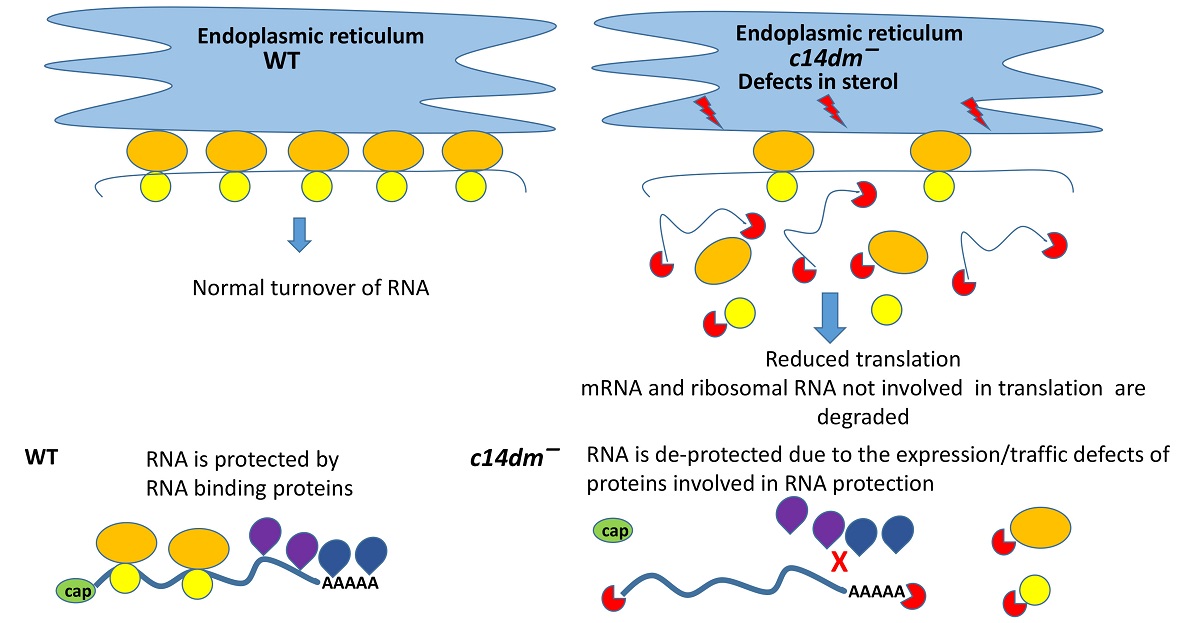Leishmania species are parasitic protozoans which cause leishmaniasis affecting millions of people worldwide. Sterols are important components of plasma and organellar membranes and serve as precursors for the synthesis of signaling molecules. In contrast to animals, Leishmania do not produce cholesterol but instead synthesize ergostane-based sterols. C14-demethylase is a key enzyme involved in the biosynthesis of sterols in Leishmania parasites and an important drug target. Its inactivation leads to multiple defects including increased plasma membrane fluidity, mitochondrion dysfunction, hypersensitivity to stress and reduced virulence. In this study, we revealed a novel role for sterol synthesis in the maintenance of RNA stability and translation. Sterol alteration in C14-demethylase knockout mutant leads to increased RNA degradation, reduced translation and impaired heat shock response. Thus, sterol biosynthesis plays an unexpected role in global gene regulation in Leishmania parasites.

